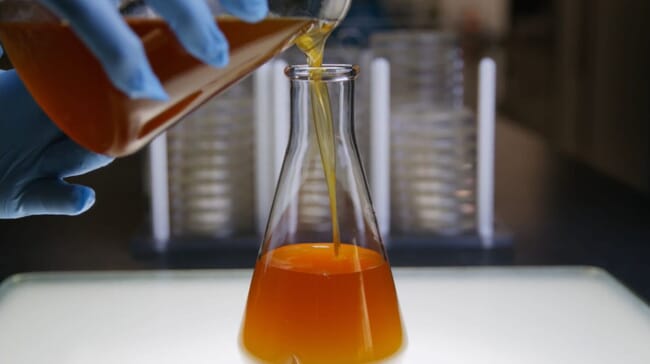
© Veramaris
Despite increasing algae oil production by 61 percent in 2024, Veramaris reduced its greenhouse gas emissions by 5.6 percent (Baseline 2021). Looking ahead, the next phase of the company’s scale-up requires commitment from aquafeed markets and the downstream seafood value chain. With this support, Veramaris is ready to grow, so that global aquaculture production can also continue to increase with a reduced risk of short-term Omega-3 supply shocks.
“In 2024, we operated at full capacity for the first time, proving that aquaculture can expand responsibly – without deepening its reliance on wild fish stocks for essential long-chain Omega-3s,” said Veramaris CEO Gertjan de Koning in a press release.
However, as shown in the report, sustainability involves more than just emissions. Aquaculture has long depended on wild-caught forage fish to supply Omega-3s, but meeting demand has become increasingly difficult. Fish oil price volatility continues to disrupt the market, especially as climate change continues to disrupt global fisheries. Veramaris has helped adress the supply gap by offering a viable, reliable and scalable source of high-quality Omega-3s for aquaculture.
“Our algae oil has moved from an alternative to a mainstream ingredient, and our goal is to secure its long-term place in aquafeed formulations to support the sustainable growth of the industry. Only with further commitment from the entire value chain can we realise our vision of growth that sustains the future and we’re working with our partners to achieve this,” added de Koning.

